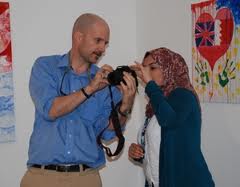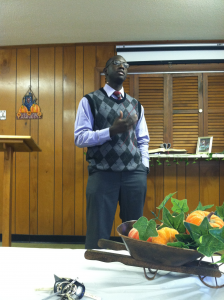Reading Todd’s submission for an Aftermath Project grant reminded us that on some level all humans are in a race with death. Some of us secretly wish to cheat or outrun it. Others encounter circumstances that make them face it head on. Todd wrote that this realization draws him to the harrowing stories of former Lost Boys of Sudan and the dreams many have to return and rebuild. As Todd says, “Few of us have had reality turned upside down so suddenly, going from a safe and familiar life to one of survival, without protection, in an unforgiving landscape. Yet, something in their unique journey rings universal. So, I and many who know their journey want to know: what do they remember about the place left behind, what is there now, and what are they to do with memories? Repair and renewal is yeoman’s work.”
 We are wishing Todd luck as he waits to hear by December if his proposal will be accepted. No doubt, in his capable and caring hands, his camera can do much to build bridges of understanding.
We are wishing Todd luck as he waits to hear by December if his proposal will be accepted. No doubt, in his capable and caring hands, his camera can do much to build bridges of understanding.

